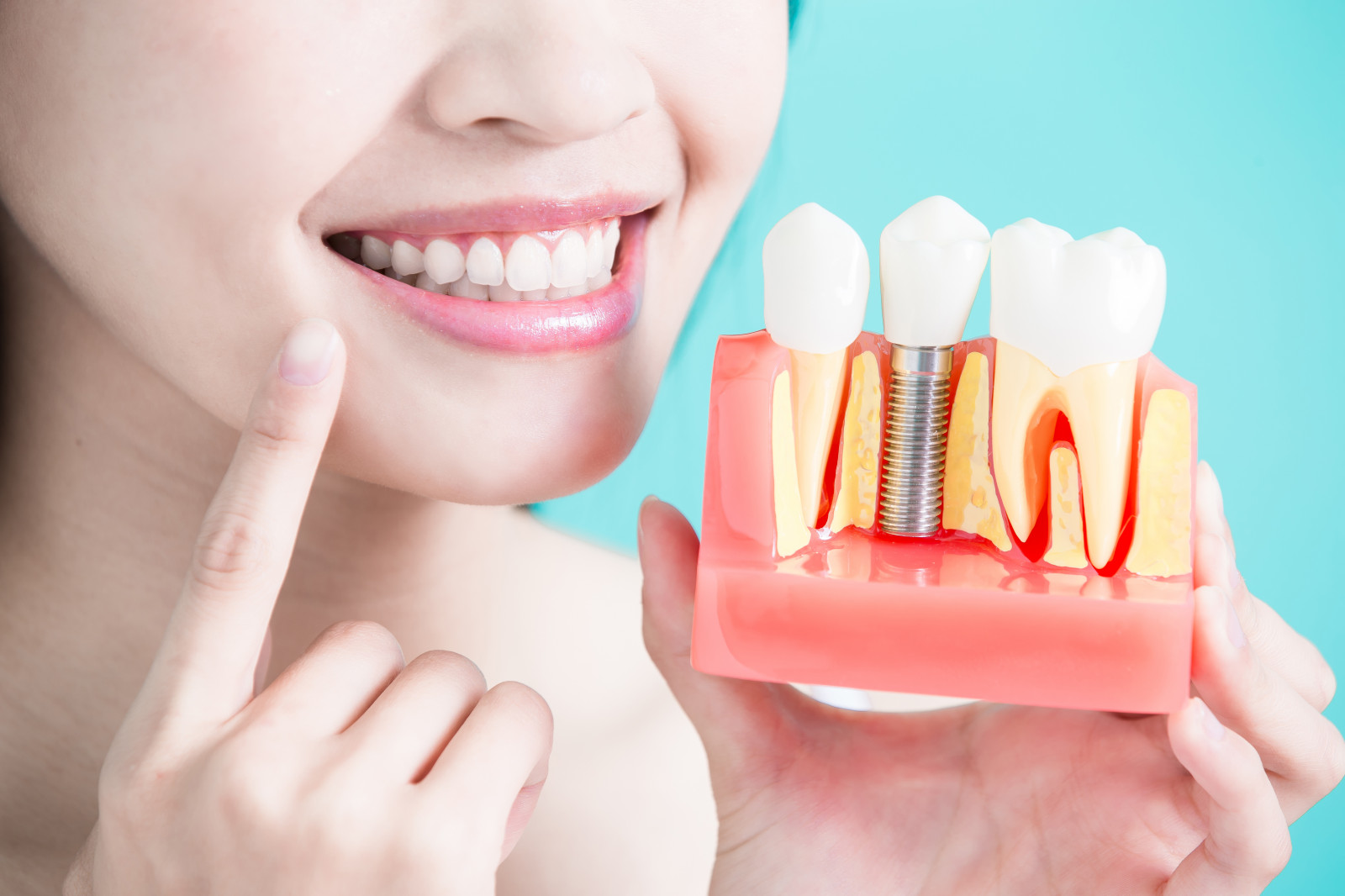
Dental implants
When it comes to tooth replacement, dental implants are often considered the gold standard. They provide a permanent, natural-looking solution that can last a lifetime with proper care. However all dental implants are not the same. There are various types of dental implants available and each has its own unique advantages and disadvantages. In this blog post, we’ll highlight the major types of dental implants that help you make an informed decision about which one is the best fit for you.
But before proceeding let us discuss the difference between dental implants and dentures because there is often confusion between these two procedures.
Dental Implants Vs Dentures
Dental implants and dentures are two common options for replacing missing teeth, but there are significant differences between the two. Dental implants are artificial tooth roots that are surgically placed into the jawbone, while dentures are removable appliances that sit on the gums and replace missing teeth.
Dental implants provide a more permanent and stable solution as they fuse to the bone over time, allowing for greater support and stability for the artificial teeth that are attached to them. Dentures, on the other hand, can be removed and may require adhesives to stay in place, which can be uncomfortable and inconvenient for some people.
Additionally, dental implants in Allen or any other cities of Texas require a surgical procedure and a longer recovery time, while dentures can typically be fitted and adjusted more quickly. Ultimately, the choice between dental implants and dentures depends on a variety of factors, including the patient’s oral health, budget, and personal preferences.
Key Types Dental Implants
- Endosteal Implants
Endosteal is a very common type of dental implant. They are surgically placed into the jawbone and serve as a foundation for artificial teeth, such as dental crowns, bridges, or dentures. Endosteal implants can be made of titanium or zirconia, both of which are biocompatible and allow for osseointegration – the fusion of the implant with the jawbone. Endosteal implants are suitable for patients with sufficient jawbone density and height, and can provide excellent stability and support for replacement teeth.
- Subperiosteal Implants
Subperiosteal implants are less commonly used than endosteal implants, but they can be a good option for patients who don’t have enough jawbone to support endosteal implants.
Subperiosteal implants are placed on top of the jawbone and under the gum tissue, and they consist of a metal frame with posts that protrude through the gum to support artificial teeth. Subperiosteal implants are typically made of titanium and can be a good solution for patients who are unable or unwilling to undergo bone grafting procedures.
- Zygomatic Implants
Zygomatic implants are a specialized type of dental implant used in cases where the patient has severe bone loss in the upper jaw. Rather than being placed into the jawbone, zygomatic implants are anchored in the dense cheekbone (zygoma) and extend through the maxillary sinus to support artificial teeth. Zygomatic implants are longer than other types of implants, and they require specialized training and equipment for placement. However, they can provide a stable foundation for replacement teeth in patients who would otherwise be unable to receive traditional dental implants.
- Mini Dental Implants
If you are looking for smaller versions of conventional dental implants, Mini implants are an ideal option. They are made of titanium and are used to anchor artificial teeth or bridges in place. Mini dental implants are less invasive than traditional dental implants and require less healing time.
Mini dental implants are a good option for patients with smaller teeth or those who require anchoring for dentures. In addition to this, they are also suitable for patients whose jawbone density is quite low to support traditional dental implants.
- All-on-Four Implants
All-on-Four implants are a type of implant that is used to support a full arch of teeth. They are made of titanium and are anchored into the jawbone at four specific points.
The artificial teeth are then attached to the implants, providing a stable and secure solution for patients who have lost all of their teeth.
All-on-Four implants are a good option for patients who do not have sufficient jawbone density to support traditional dentures. They require a less invasive surgical procedure than traditional dental implants and can provide an effective solution for patients who require full arch replacement.
Conclusion
Dental implants are an affordable and effective sol. for individuals who have lost one or more teeth. They provide a long-lasting and stable solution that can improve the appearance and functionality of the mouth. However, each type of dental implant has its own unique advantages and disadvantages, and the best option for you will depend on your individual needs and circumstances.
